Vineyard Voices: Words, Faces and Voices of Island People. Excerpts from Interviews by Linsey Lee. Photographs by Linsey Lee and Mark Lennihan. Martha’s Vineyard: the Martha’s Vineyard Historical Society, 1998. 296 pages. $29.95, soft cover.
Vineyard bookstores on Wednesday began selling a collection of spoken memories of Martha’s Vineyard going back to the beginning of this century - first-hand memories of watching three-masted schooners thundering ashore in Vineyard Haven during the Portland Gale in 1898, for instance, or what it was like to live at the East Chop Light as the daughter of the last keeper there.
Some of these Islanders tell tales even older than that, fragments handed down from parents and grandparents going back to the middle of the last century - about Aquinnah before it was incorporated as the town of Gay Head, about Menemsha when it was still a backwater called Creekville and about a whaling ship under the command of an Island man sailing into the harbor at San Francisco at the start of the Gold Rush.
If Vineyarders and summer residents still care about what’s at the root of the character of this Island, the first edition of this book will not remain in those bookstores very long.
In fact, years from now, when historians and regular folk want to find out more about how the Vineyard went to work, braved the seas, pulled a living from the earth, endured the tempests, met at the old gathering places and thrived without wealth, it’s a sure bet that many will start with this soft-cover anthology of Island stories, Vineyard Voices - Words, Faces and Voices of Island People, collected over the past 18 years by Linsey Lee of Lambert’s Cove.
Furthermore, Vineyarders and visitors tantalized by Island relics, such as the overnight steamers that sailed from New York or the street railway that curved along the beaches between Cottage City and Vineyard Haven, now have the chance to find out what it felt like to ride aboard them. Or to light the kerosene lamp of the Gay Head Light during the time of the Model Ts. Or to walk across the fishing weirs and old waterfronts on a tour of the perimeter of the Island in 1929.
Until now, it looked as if this century would leave us with just two broad, reliable and engrossing collections of anecdotal Island history - Country Editor, by Henry Beetle Hough, the late editor of the Vineyard Gazette (1940, republished in 1996), and Martha’s Vineyard, an Elegy, by Everett S. Allen (1982).
But now there is a third book put together in the same spirit, and of the same calibre. Vineyard Voices is that good, and that important to this Island.
Finished with striking black and white portraits taken by Miss Lee and Mark Lennihan, her collaborator in the early years of the project, and opening with an excellent Island map by Dana Gaines showing scores of old place names, Vineyard Voices gives us a departing view of the oldest inhabitants and a glimpse of the way they saw the world when they were young. From the speakers we may still draw conclusions about the how we ought to care for the Island we have inherited from them.
As Miss Lee puts it in her introduction:
“The memories and observations preserved through oral histories deepen our understanding and appreciation of the past and its connection to the present. They illuminate those qualities that make the Vineyard unique. If people listen, these histories can inform the choices that determine the future of our Island.”
Miss Lee, curator of the Vineyard Oral History Center at the Martha’s Vineyard Historical Society in Edgartown, began collecting these stories late in the 1970s. She was not the first person to record what Islanders had to say about the old ways of this place. But she was the most faithful. Usually returning two or three times to interview a subject Ñ and sometimes as many as six times - Linsey Lee has captured the memories of more than 180 Islanders, 75 of whom are represented in this collection.
The oral history center was established in 1994 to unify, catalogue and transcribe all the recordings collected over the past 40 years, and to make them available to the public. Earnings from the sale of this book, published by the historical society, will support the center, which is now helping to fund an effort that Miss Lee, for many years, financed on her own.
The theme running through all the stories concerns the virtues of living life close to the land and the sea. While acknowledging the poverty that often made this necessary (“In those years, we lived two inches ahead of starvation,” said E. Gale Huntington, the late historian, teacher, farmer, fisherman, musician and author of Tisbury), the speakers dismiss any suggestion that this poverty was a burden.
“You grew up in a community which was close-knit,” recalls the late Alice Cleveland of Edgartown. “The family and the church. I think most of the older people of my generation were hardworking and independent. But circumstances have changed. It’s a change of the times. There’s more people and less time to do things. You skim the surface these days. You don’t go down and get the fundamentals.”
The thoughts in Vineyard Voices are routinely expressed with just this sort of spare and enchanting beauty. In the titles to each piece, taken from the speaker’s own words, there are musical turns of phrase - the Woody Guthrie-like He Didn’t Care for Land Work (the late Rosalie Spence of Tisbury, speaking of her father, the mariner Zeb Tilton), the childlike romp of Twas a Very Essential Get-Together (the late Willis Gifford of West Tisbury, speaking of the Agricultural Fair) and especially the camp song loveliness of We’d All Pile in the Feather Bed Come the Tempest (the late Fannie Jenkinson, talking of storms during her childhood in Chilmark).
These records come from practiced storytellers, blessed with a wise and wry northeastern sense of humor. That last story - Fannie Jenkinson’s - illustrates it perfectly. Born in Chilmark in 1893 and dying there at the age of 101, she recalls the family making its own bedding when she was a child:
“We had two or three feather beds. Puff them up, they’d come up nice. A terrible thing to get into. You’d get into them, into a hole, you’d stay there. You never hear of a henhouse being struck by lightning. So we’d all pile into the feather bed come the tempest.”
That’s Faulkner language. It’s almost hymnal. You don’t hear it much around here anymore, but you’ll find it on just about every page of this book.
Linsey Lee has lined up these stories with care, so that in the run of them you feel as if you’re making a journey back and forth across the Island, geographically, temporally and socially. There are memories of racism, old animosities and frustrated dreams, followed by larks, ancestral gossip and triumphs over the longest of odds. Memories of a town told by a native yield gracefully to those told by a visitor. A driver of an up-Island grocery wagon is recalled in one piece by his daughter and in the next by the son of a man he never failed to visit on his rounds. Parallax views like these make the past three-dimensional.
And taken together, these individual narratives tell a much broader and more dramatic tale of Island life than any one of them could tell by itself. It’s a story that lasts for decades - a record collected, assembled and edited with tremendous skill.
Those who read or hear the stories in this work owe thanks to the Islanders who opened their homes to Miss Lee. From them we learn anew that the character of Martha’s Vineyard rests, finally, not upon the issues of whether the land is open or built up, the traffic fluid or gridlocked, the overall mood anxious or restful. Character depends, in the end, on the way we as Islanders (by birth or choice) congregate and draw sustenance from the land and water around us.
Linsey Lee has for years handed over all praise for her efforts to the people who have let her into their lives. Now it is her turn. Vineyard Voices is the work of a dedicated historian with a singular talent for gathering and saving a body of knowledge more easily and permanently lost than any other - memory. Miss Lee, Mr. Lennihan and the Martha’s Vineyard Historical Society have done the Island and our own descendents an enormous service by producing this book.


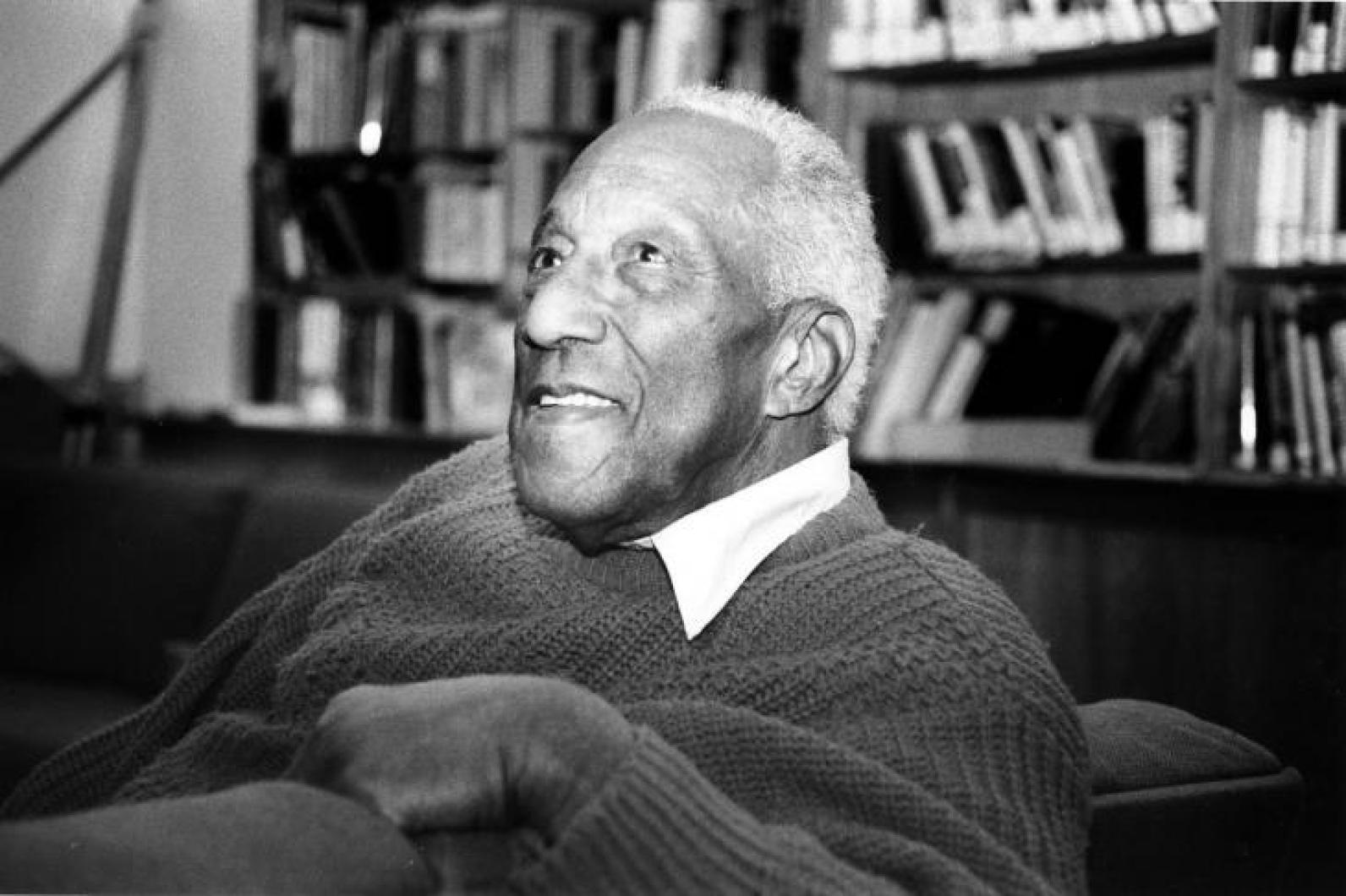



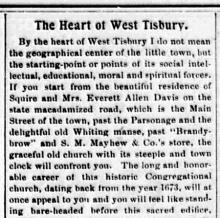
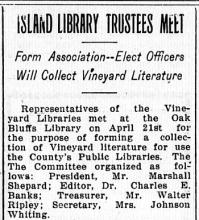
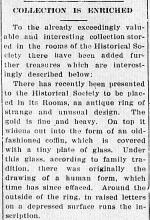

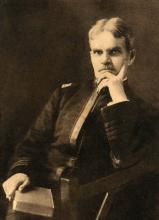
Comments